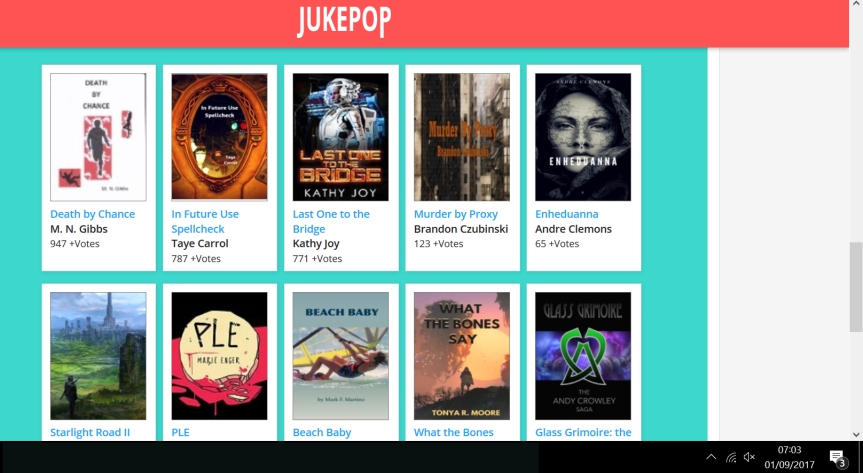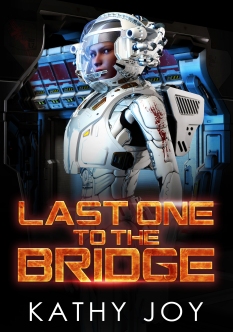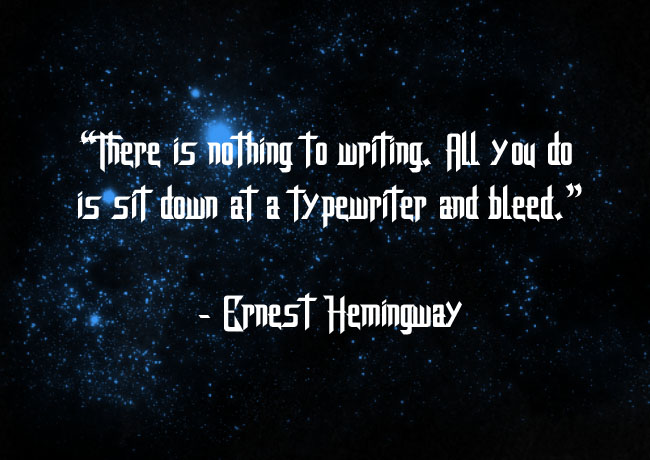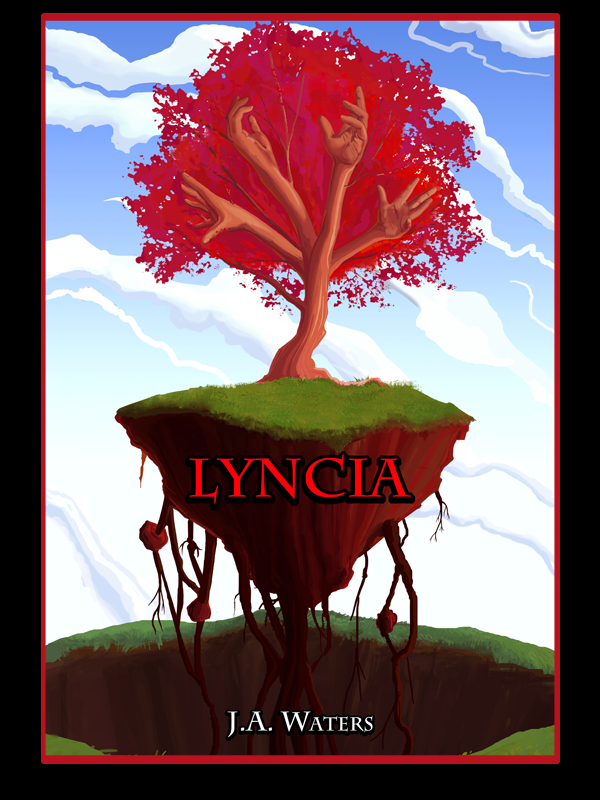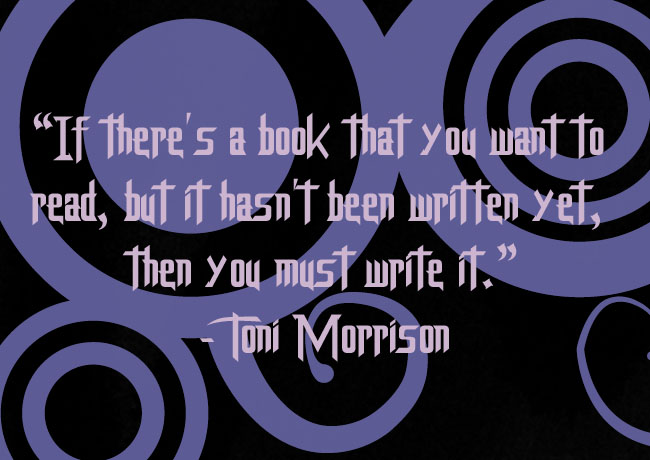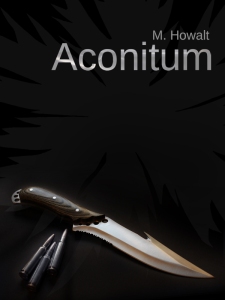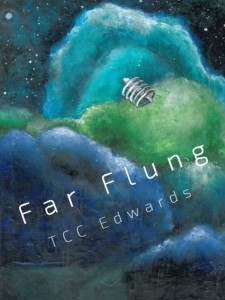I’ve been entering the Summer Writing Program (SWP) for about three years now. I usually make several blog posts in the run up, but this year I didn’t get a chance until now.
This summer has been hectic (although that would be putting it mildly). It’s tough enough keeping a pre-school age child occupied for two months, it’s harder still when that child is autistic. So yeah… busy, busy.
So while I did somehow find the time to enter the competition this year, every spare second counted so I didn’t get a chance to make an announcement like I usually do before I enter or any posts during, so I’ve done one now on my experience.
My project this year was a sci-fi horror titled Last One to the Bridge.
How did I do?
LOttB actually did really well in the SWP. I was in first place right up until the last few days when I was finally overtaken. In fact I was overtaken literally overnight.
This was at 9:42PM on the 28th – just 3 days before the end of the contest.
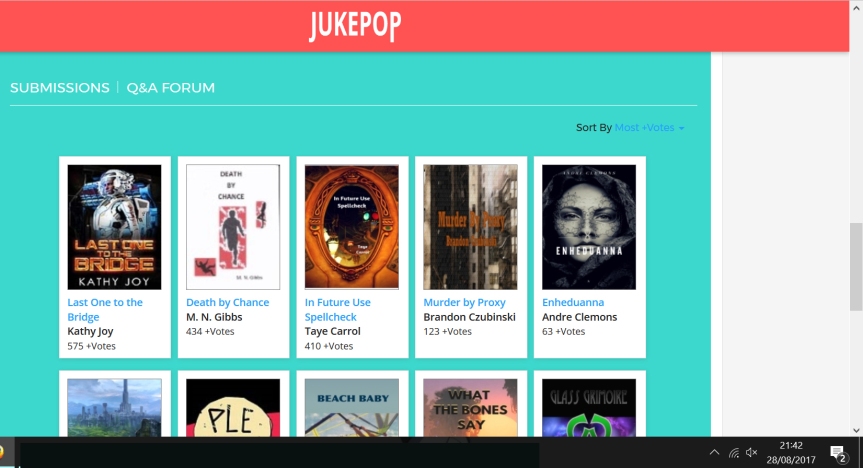
This is 9:30am the next morning:

As you can see, it got CRAZY at the last second.
I woke up this morning to this:
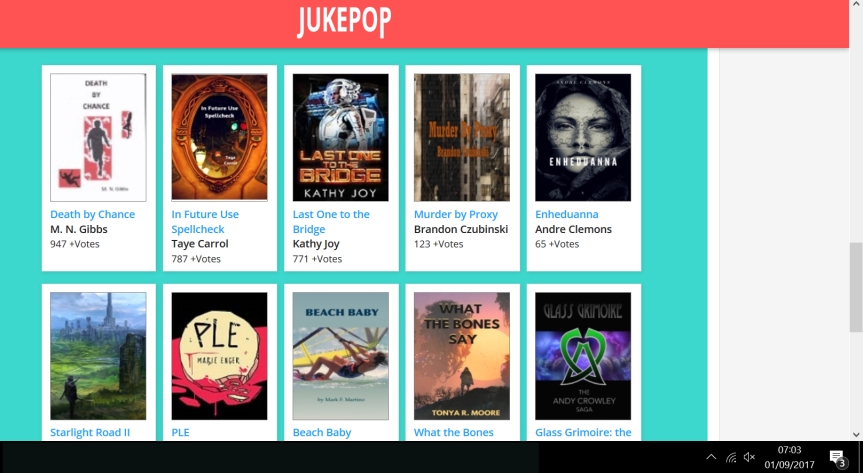
In terms of raw votes, I came third place. That doesn’t necessarily mean I didn’t win, nor does it mean those ahead of me will. In order to win the contest you need to have the most readers who follow your story from start to finish, so votes aren’t everything. For all we know, one of the authors behind us might be crowned. Results are announced on the 5th September, so we’ll have to see.
It is a little disappointing to slip so far in the last few seconds but I am amazed at how well LOttB did. Almost 800 votes is incredible, especially for a story with only 18 chapters. That works out to potentially 42 readers which in just two months is fantastic. It’s probably the best I have ever done in the SWP.
The SWP has been a big learning experience this year and I’ve definitely become a better writer for it.
More details about Last One to the Bridge
Blurb:
My name is Reva Mallick. I was in a pod. I just woke up. Something is on the ship – it killed the crew. I need help.
My only hope is Adam, a fellow survivor trapped on the bridge. With only his voice as my guide, I must travel through the ship to reach him. It won’t be easy. I don’t know anything about space travel – I’m a horticulturist, not an astronaut. The thing that killed the crew is at my heels, hunting me down. I don’t know if I’ll survive, but I won’t go down without a fight.
The story is inspired in part by an old short story I found while digging through my old writing files. It was an unfinished story where I had only written an intro paragraph and the end. I jotted some notes down about it but didn’t do much with it after, unsure of where to go with it but knowing I’d like to give it a whirl at a later date.
A few weeks go by, my husband and I are chatting and he tells me he’s never seen Ridley Scott’s Alien. Crazy, right? So we pop it in the DVD player and watch it. As we’re munching on popcorn, watching Ripley creep around the Nostromo, desperately trying to outwit the deadly Xenomorph, an idea strikes me. What if Ripley hadn’t known how to work the escape pod? She was the warrant officer, not a pilot – what if her skills had been limited? I imagined her bumbling at the controls trying to figure out how to launch the damn thing while the self destruct sequence ticked down and the Xenomorph slowly uncurled from its hiding place…
Later that evening as I finished reading Andy Weir’s The Martian, I wondered what would happen if Mark Watney hadn’t been a botanist? What if he’d been a geologist? Would either of them have survived? How different would the story have been? It was that moment that ‘Last One to the Bridge’ was officially born.
As you can probably gather from the blurb, the story follows Reva, a member of the terraforming crew. She has a variety of degrees including horticulture, botany and agononomy. As you can imagine, none of that helps much when you wake up on a ship in deep space. Reva doesn’t even know how to work the doors.
Ultimately LOttB is an exploration into human survival – how far can you get on the will to survive alone?
All-in-all I had a great time in the SWP. I feel like I’ve grown as a writer and learned to keep working towards a deadline even when life seems to conspire against you. I’m glad I was able to take part this year. Not only that but there have been some stunning stories on offer – my two favourites being Andre Clemons’ Enheduanna and Tonya Moore’s What the Bones Say.
So that was my experience this year. Did anyone else enter? What was you experience? What did you learn? Leave me a comment!

